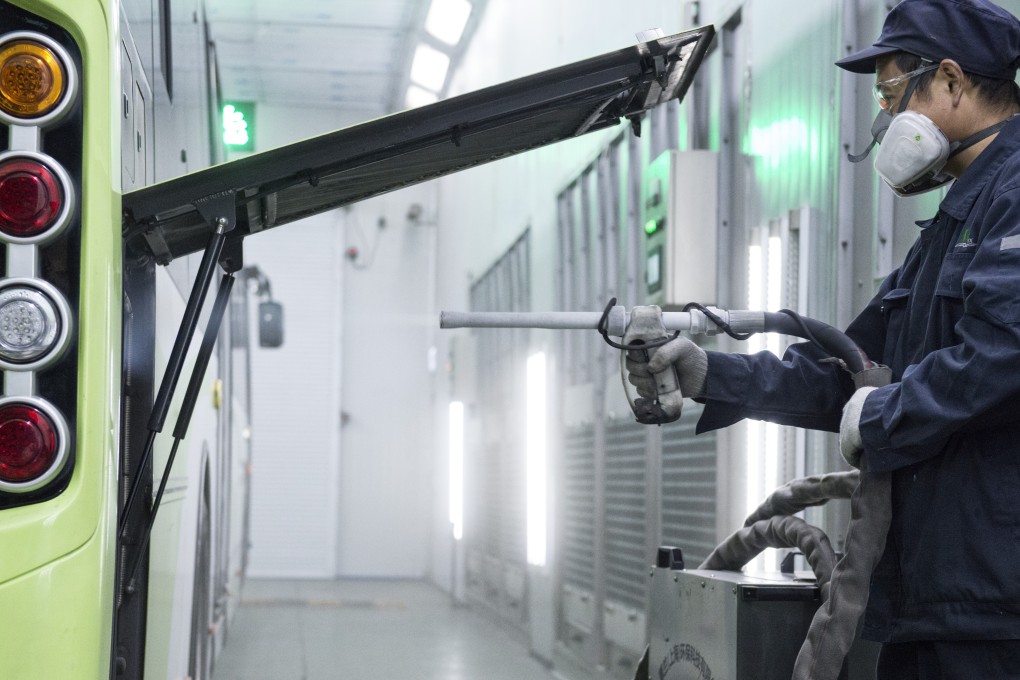Powered by the state, China takes charge of electric buses, with Shenzhen taking the lead
- With world’s first all-electric public transport network, technology hub Shenzhen has taken pole position in a nationwide drive towards green development
- Shanghai is not far behind, expects its own electric fleet to be on the road in 2020, two years ahead of schedule

It’s 9pm when the first buses start arriving at the Shanghai Bashi Public Transportation depot. In the coming two hours, as they finish service around the city’s Baoshan district, almost 300 drivers will bring their vehicles in to be cleaned, maintained and parked for the night.
The queue to enter the security gate grows, but the employee in charge of the petrol pumps has little to do; he battles boredom with his phone while buses pass by. And his future employment prospects look even bleaker.
Two-hundred forty of the buses here, at Shanghai Bashi’s second-division depot, are fully electric, and it seems likely that, next year, no combustion engine will enter the premises at all. In an effort to curb pollution and noise, China’s most populous city expects the substitution of all traditional vehicles in its public transport system to be completed two years ahead of schedule.
That helps explain why the queue of buses has moved on so swiftly to the washing tunnel.
“EV [electric vehicle] buses use a high voltage system that generates a lot of static electricity and, therefore, catches a lot of dust,” says depot manager Li Hong. “We can’t use water to clean the engine, so we have installed a high-pressure, dry-ice cleaning machine. It’s more expensive than conventional cleaning because the tunnel requires a powerful vacuum system to catch all the dust [which is stored in drawers inside the wall], but we save water and reduce the amount of particles in the air even further.”
Nicknamed Black King Kongs, Yutong buses are the latest addition to Shanghai’s municipal fleet. Although they don’t make much noise – “Around 50 decibels, half of what a combustion engine can create,” Li says – and so tend to catch jaywalkers by surprise, they are safer in other ways.
